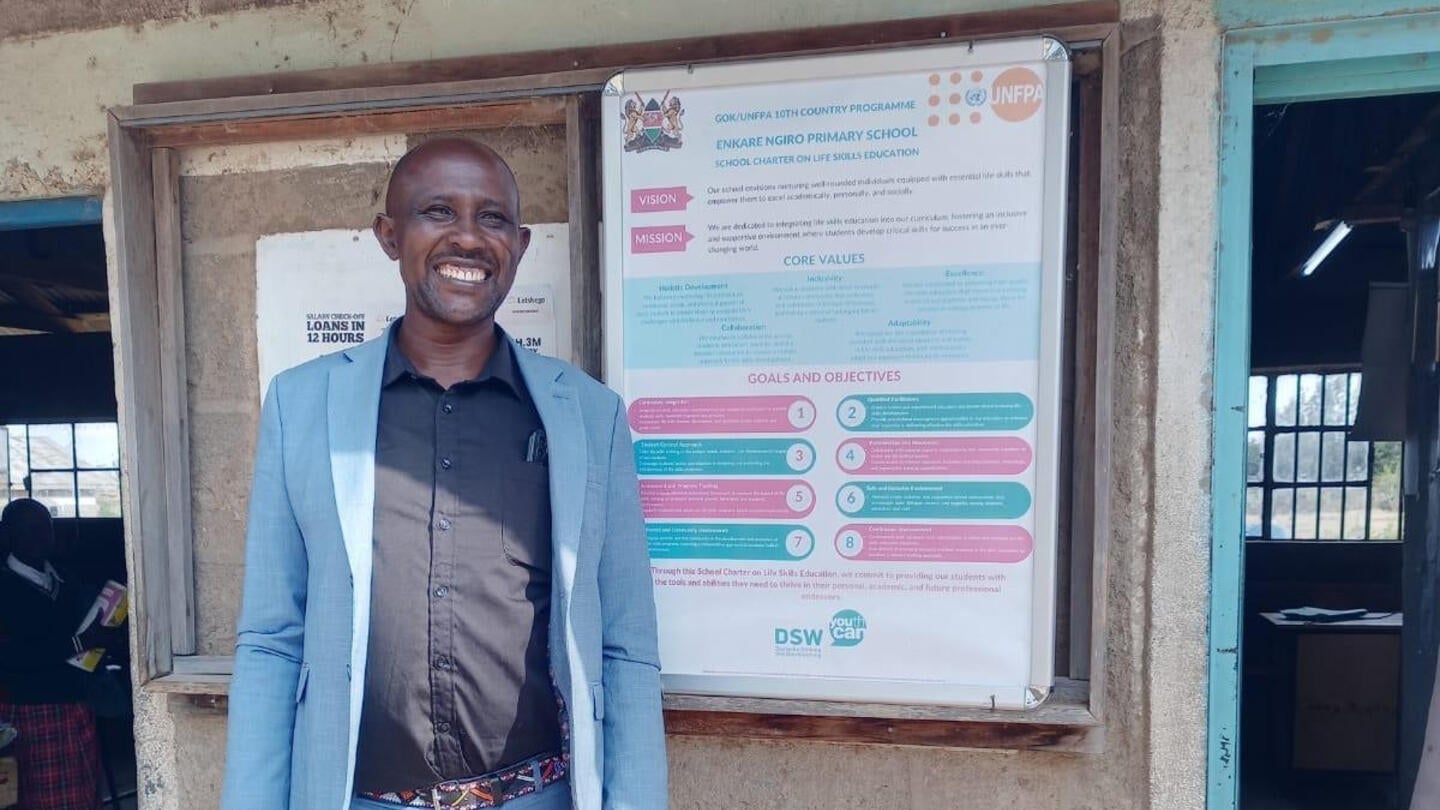Life skills education is leaving a remarkable impact on pupils in West Pokot, Samburu, and Narok counties, thanks to the concerted efforts of educators and the support of the Delivering Accurate Information and Services on sexual and reproductive health and Rights to Young People (DAISY) project by Youth for a Sustainable World (formerly DSW Kenya), and funded by UNFPA. This initiative has trained headteachers and teachers in 60 schools, equipping them with tools to address critical issues such as female genital mutilation, gender-based violence, sexual and reproductive health and rights, and adolescent school re-entry.
The training sessions, organized in partnership with the county departments of Education and Health, have empowered schools to establish or enhance programs that provide essential skills to learners. Schools like Nagoroworu Primary in Samburu have introduced health clubs where pupils engage in practical activities such as sewing reusable period pads and menstrual beads to address the shortage of sanitary pads that often keep girls out of school.
At Wamba DEB Primary School in Samburu County, the ripple effects of life skills education are evident in improved academic performance and enhanced discipline among students. Headteacher Boniface Nakori commended the program, noting: “Since we began the sessions, pupils' discipline and performance have significantly improved.” He added that the newfound confidence and open communication between teachers and students have made it easier to identify and tackle challenges faced by the youth, beyond academics.
As a passionate advocate against child marriage, GBV, and FGM, Nakori goes above and beyond to ensure the safety and well-being of his students. Recently, he played a pivotal role in seeking justice for a defiled girl, ensuring the perpetrator faced the law.
A Significant Drop in Teenage Pregnancies and Dropouts
The impact of life skills education extends beyond academics. Golgotim Primary School in Samburu has seen a dramatic reduction in teenage pregnancies, with only two cases reported in 2024 compared to 12 the previous year. The school also celebrated the re-enrolment of 11 pupils who had dropped out due to various reasons, including teenage pregnancies and the transition to becoming morans (warriors).
“Life skills education has been a game changer for our learners. They are tackling challenges with confidence, making smarter choices, and building stronger friendships. It's amazing to see them grow into well-rounded individuals,” said David Kirempe, headteacher of Enkare Ngiro School in Narok.
Chepkechir Primary School in West Pokot echoed similar success, with teenage pregnancy cases dropping from three in 2023 to just one in 2024. According to Peter Sikowo, the school’s focal teacher, this progress is attributed to the establishment of a guiding and counseling department that engages adolescents with crucial information about life skills and the importance of education. Parents have also been actively involved through awareness campaigns, further reducing risky behaviors such as participation in night celebrations (kwarakwara).
Safe Spaces and Innovative Solutions
The initiative has also provided platforms for students to voice their concerns. Enkare Ng'iro Primary School’s talking box allows learners to anonymously share their challenges, enabling teachers to provide timely support and interventions.
The overwhelming support from school management teams has been instrumental in the program’s achievements. Teachers, parents, and administrators have united in their commitment to creating an environment where students thrive academically and socially.
Life skills education is proving to be a transformative force in shaping the future of young learners in the three counties. “With continued support and investment, these schools are setting a blueprint for others to follow, ensuring every child’s right to education, safety, and empowerment,” says UNFPA Sexual and Reproductive Health and Youth Advisor Kigen Korir.


